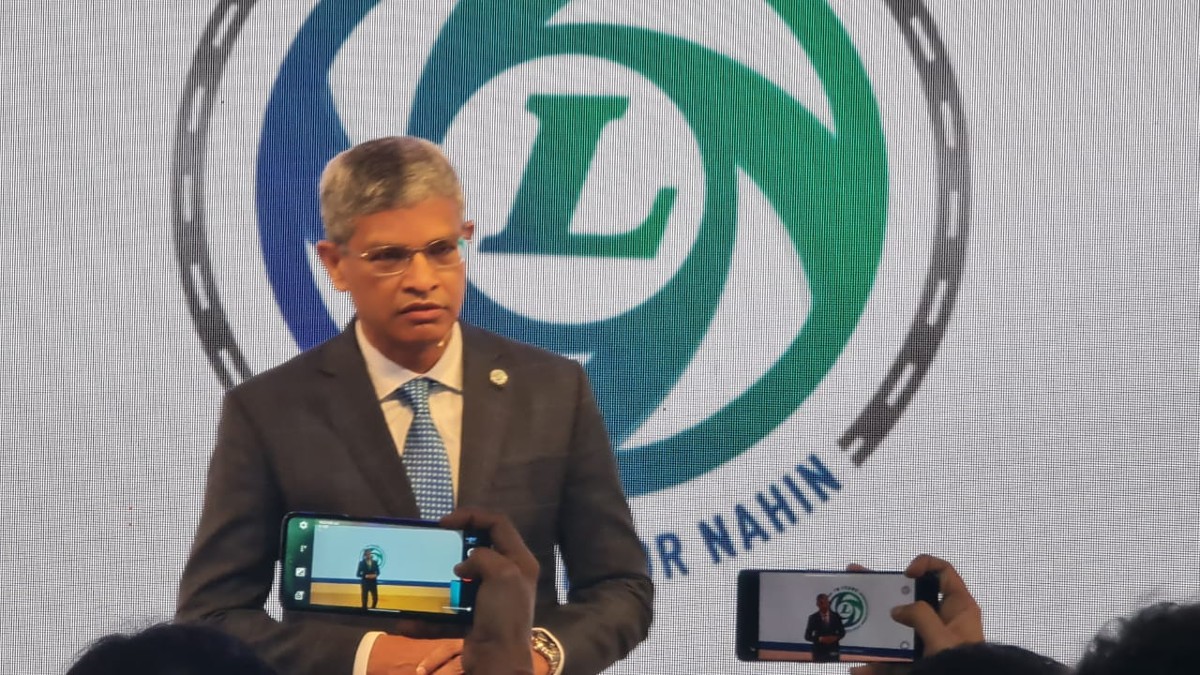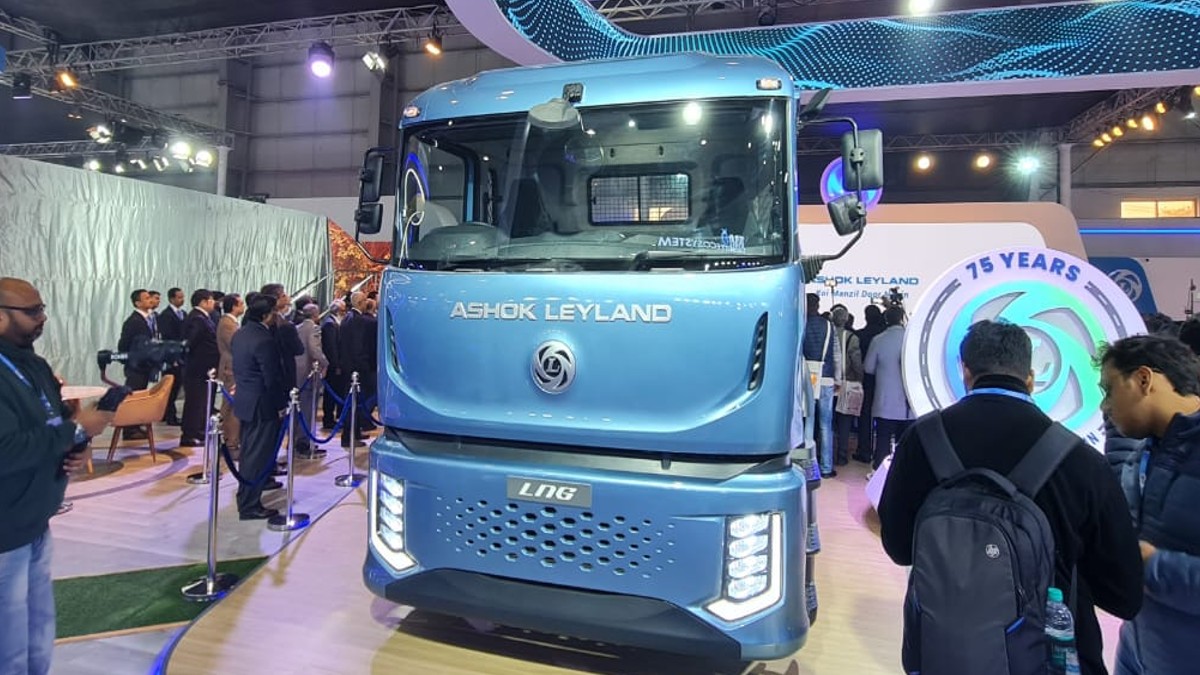
File shot of Dr N. Saravanan, CTO, Ashok Leyland at Auto Expo 2023 outlining the company's alternate fuel strategy.
Reliance Industries (RIL) and Ashok Leyland recently unveiled what they claim is India’s first Hydrogen Internal Combustion Engine (H2-ICE) powered heavy-duty truck. The vehicle was flagged off by Prime Minister Narendra Modi at the India Energy Week.
Speaking earlier in January on Hydrogen as an alternative fuel, Dr N. Saravanan, CTO, Ashok Leyland had said, “We expect various fuel options to co-exist. Each of these technologies has its own pros and cons. BEVs have zero emissions, but at the same time there is also need for high power chargers. Also, there is a payload loss due to heavier batteries in larger long-distance vehicles.”
The Ashok Leyland H2-ICE heavy-duty truck range (19-35-tonne) is powered by hydrogen, maintaining overall architecture similar to a conventional diesel-based combustion engine thus helping quicker migration to cleaner energy sources at a relatively lower cost delta.
According to Dr Saravanan, “The H2 Fuel Cell needs to have an ecosystem including fuel and high-pressure tanks. There is also the sensitivity of H2 quality to fuel cell and ambient air quality. On the positive side, H2 fuel cell will have higher efficiency than H2 ICE.”
Highlighting the advantages of the H2 ICE vehicles, he elaborated how these vehicles “will have lower efficiency than fuel cell. It also costs less than the H2 fuel cells. The adoption of all these technologies will depend on the application.”
The cost factor
In a price sensitive market like India, for any innovation to succeed, the attached price tag is also a key factor. The Ashok leyland CTO considers that a comprehensive view needs to be taken. It is never just the “cost of hydrogen FCEVs Vs EV…..not just initial cost, but also the running expenses.

Ashok Leyland showcased its FCEV initiative at Auto Expo 2023
He goes on to explain how it is “a combination of various factors will lead to good TCO for FCEV. In the long-haul segment, a typical vehicle running for greater than 500 km per day is more likely to have better TCO than EV. Another important factor is the cost of H2 per Kg.”
One of the biggest advantage of Hydrogen Vs fossil fuels, in the Indian context is that “H2 could be produced in India. The Energy Security and zero emissions (with Fuel Cell) are few of the big advantages,” concluded Dr Sarvanan while explaining the evolving dynamics of alternative fuel options in India.
Courtesy: FE
|
